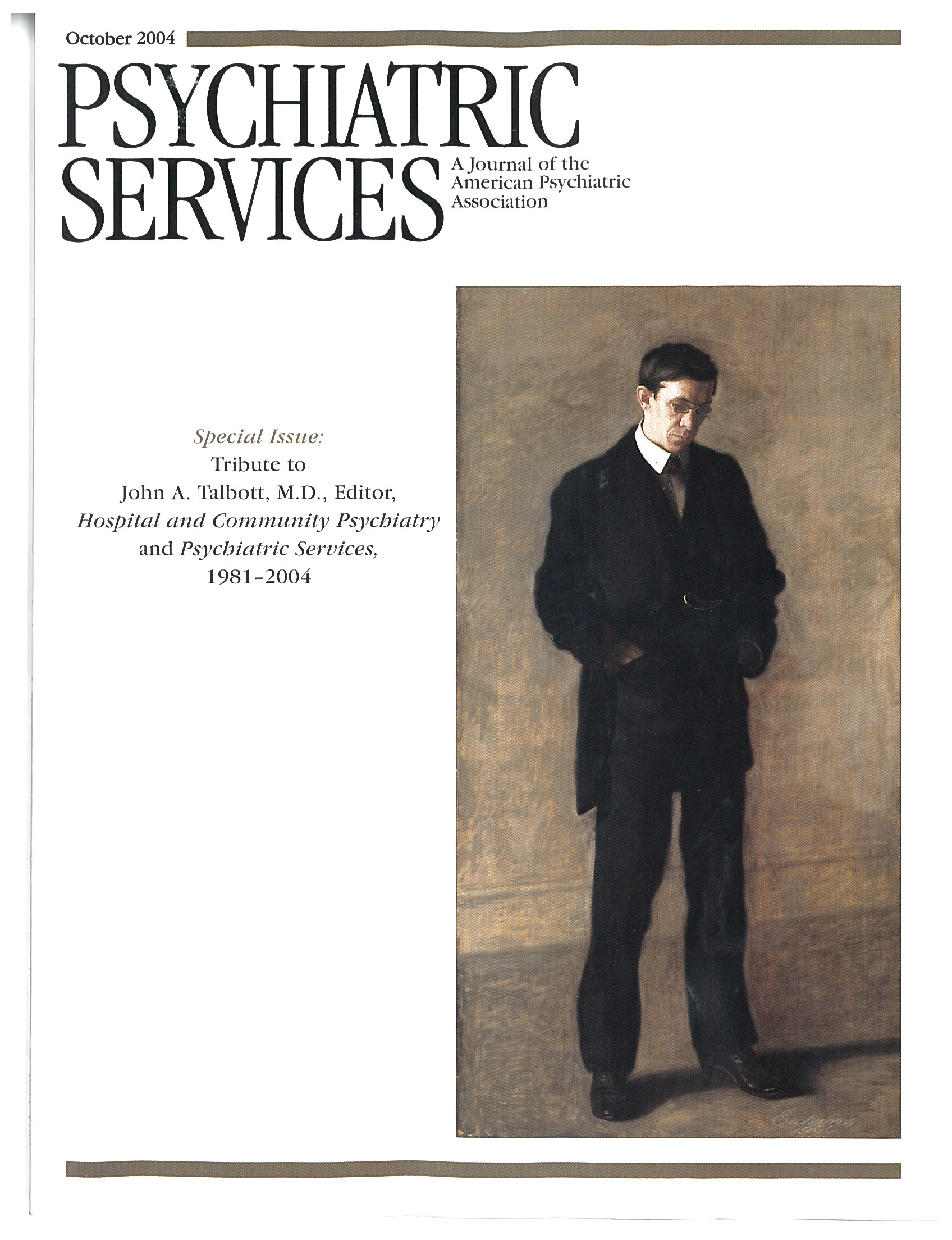To the Editor: John Talbott has been a teacher, mentor, friend, and hero for many of us. To me, he exemplifies Aristotle's famous quote: "We are what we repeatedly do. Excellence, then, is not an act, but a habit." Over the past three decades, John has been a spokesperson both for psychiatry and for those who have mental illnesses. In his various roles, he has consistently articulated the need for more research, better care, and more creative approaches to the treatment of people who have mental illnesses.
What type of system will work best for these individuals and their families? As a field we have struggled with this question for some time. We have gone from the times of institutions to the era of community-based care. We have seen reductionistic models that limited possibilities. Along the way what we have learned is that institutions and community-based care are not mutually exclusive. We need an adequate number of high-quality institutions and community services that include long-term hospitalization, community hospital units, day and night hospitals, intensive outpatient programs, community mental health centers, residential care facilities, assertive community treatment programs, supported employment, family education and support programs, rehabilitative services, case management, substance abuse treatment, health care, and welfare and income supports for a broad range of patients. How to provide all of these services on a continuum, in a well-integrated and sophisticated system, has been the question. When one attempts to think of a person who envisioned the need for this continuum before many others and who described it better than anyone else, the name that comes to mind is, of course, John Talbott. He has taught us that any reductionistic proposal lacks merit and that treatments must be flexible and graded and must integrate psychosocial and psychopharmacologic modalities.
John has always done what was necessary to preserve the core values of our field. He has been a hero for many of us. My words can hardly do justice to his efforts, to what he has accomplished, and to what he has done for our field.
Dr. Saeed is professor and chair of the department of psychiatric medicine at Brody School of Medicine at East Carolina University in Greeneville, North Carolina, and editor of Psychiatrist Administrator.



